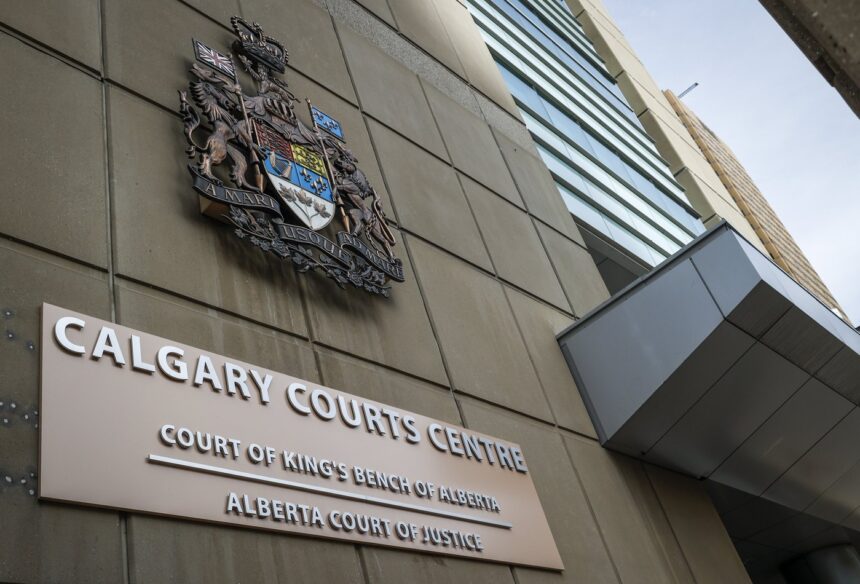Yesterday afternoon, a provincial court judge granted a temporary injunction against Alberta’s controversial Bill 17, halting implementation of the transgender healthcare restrictions that were set to take effect next week. The ruling marks a significant development in what has become one of the most divisive policy debates in our province.
I’ve covered Alberta politics for nearly fifteen years, and rarely have I seen legislation spark such immediate and coordinated legal opposition. The injunction comes after a coalition of healthcare providers, civil liberties organizations, and affected families filed an emergency petition arguing the bill violates Charter rights.
Justice Marion Reynolds delivered the ruling after a marathon two-day hearing, writing that the petitioners “demonstrated a serious question regarding constitutional validity” and that proceeding with implementation “could cause irreparable harm to vulnerable youth.”
Under the contested legislation, minors under 16 would be prohibited from accessing gender-affirming procedures, including puberty blockers and hormone therapy, while those aged 16-17 would face new parental consent requirements. The bill also restricts surgery options until age 18.
“This pause gives everyone breathing room while the courts properly examine the evidence,” Dr. Elena Castillo, pediatric endocrinologist at Alberta Children’s Hospital, told me this morning. “My patients and their families have been living with tremendous anxiety since this bill was introduced.”
The provincial government wasted no time responding. Premier Danielle Smith held an impromptu press conference, stating her administration would “vigorously appeal this temporary setback” and that the legislation represents “necessary protections for children making life-altering decisions.”
Data from the Alberta Medical Association shows approximately 275 Alberta youth are currently receiving some form of gender-affirming care that would be impacted by the legislation. Studies published in the Canadian Medical Association Journal indicate these treatments significantly reduce depression and suicidal ideation among transgender youth.
The legal challenge hinges on Section 7 of the Canadian Charter, which guarantees security of the person, and Section 15, which prohibits discrimination based on personal characteristics.
“The government has yet to produce compelling evidence that existing medical protocols are insufficient,” noted constitutional lawyer Martin Freeman, who isn’t directly involved in the case but has been closely monitoring proceedings. “Courts typically defer to medical consensus in health-related matters.”
I spent yesterday afternoon talking with families outside the courthouse. Many described the ruling as a temporary reprieve from overwhelming stress.
“We’ve been considering relocating to British Columbia if this goes through,” admitted Calgary parent Stephanie Warren, whose 15-year-old has been receiving hormone therapy for nearly a year. “Today gives us hope we won’t have to uproot our entire lives.”
Opposition Leader Rachel Notley criticized the government for “creating unnecessary chaos in healthcare” and urged focus on reducing surgical wait times and addressing the family doctor shortage instead of “divisive social policy.”
Alberta’s approach mirrors similar legislation in several American states, though Canadian courts have historically viewed healthcare access through a different constitutional lens. The full court challenge is expected to be heard later this year, with many legal experts predicting the case could eventually reach the Supreme Court of Canada.
Meanwhile, medical professionals report increasing confusion among patients. Dr. Michael Henderson of the University of Calgary’s Gender Health Program told me they’ve received over 100 calls in the past week from concerned families unsure about appointment cancellations.
“The uncertainty alone creates harm,” Henderson explained. “Patients wonder if they should stockpile medications or seek treatment in other provinces. That’s no way to deliver healthcare.”
Alberta Health Services has temporarily paused processing new referrals for youth gender clinics until legal clarity emerges, creating additional backlogs in a system already strained by post-pandemic demands.
For now, the injunction preserves the status quo, meaning existing patients can continue their current treatment plans while new assessments follow established medical protocols rather than the proposed legislative restrictions.
The road ahead remains uncertain. Court challenges on socially contentious legislation often stretch for years, leaving affected individuals caught in policy limbo. Whatever the ultimate ruling, this case represents a pivotal moment in defining the boundaries between government authority and medical autonomy in Canada.







